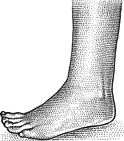Sarah S. sent in these two commercials for am/pm:
Dear am/pm:
1. I am a customer and I have a vagina. To be more specific, I am not a 20-year-old, het, white dude who likes sports, video games, and top ramen. Also, my mom doesn’t still do my laundry. (I’m just guessin’.)
2. Women are not stuff. They should not be lumped in with Funyuns. Get a clue.
Here’s a couple similar posts: Women are precious belongings (bubblewrap them) and pieces of furniture.
—————————
Lisa Wade is a professor of sociology at Occidental College. You can follow her on Twitter and Facebook.







